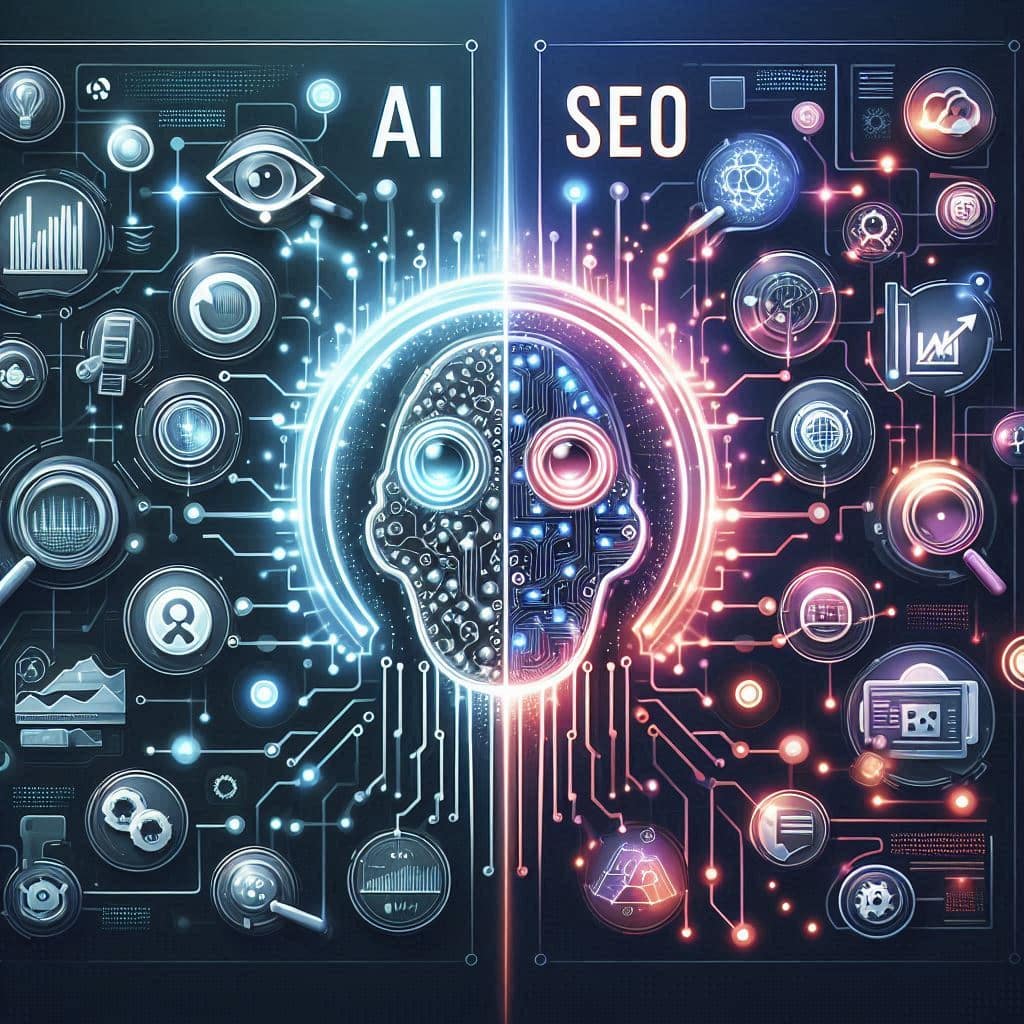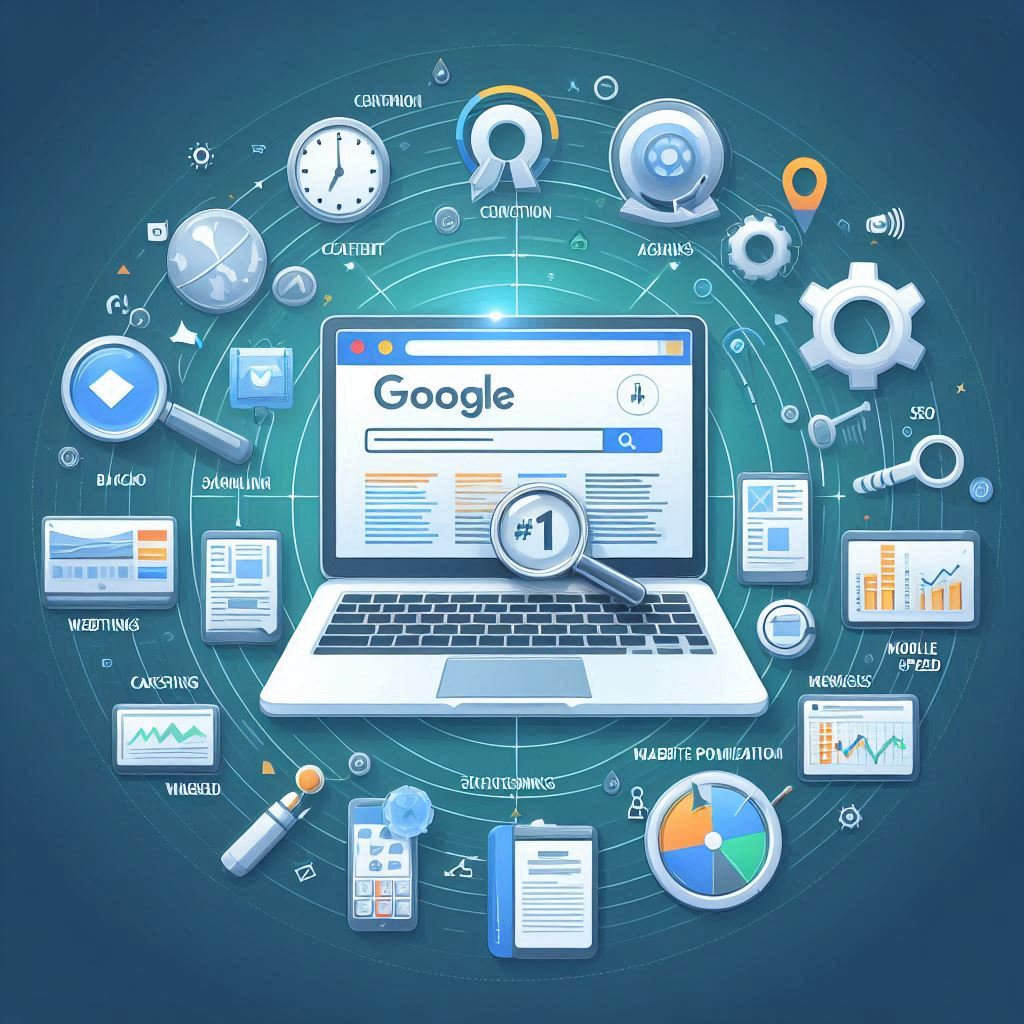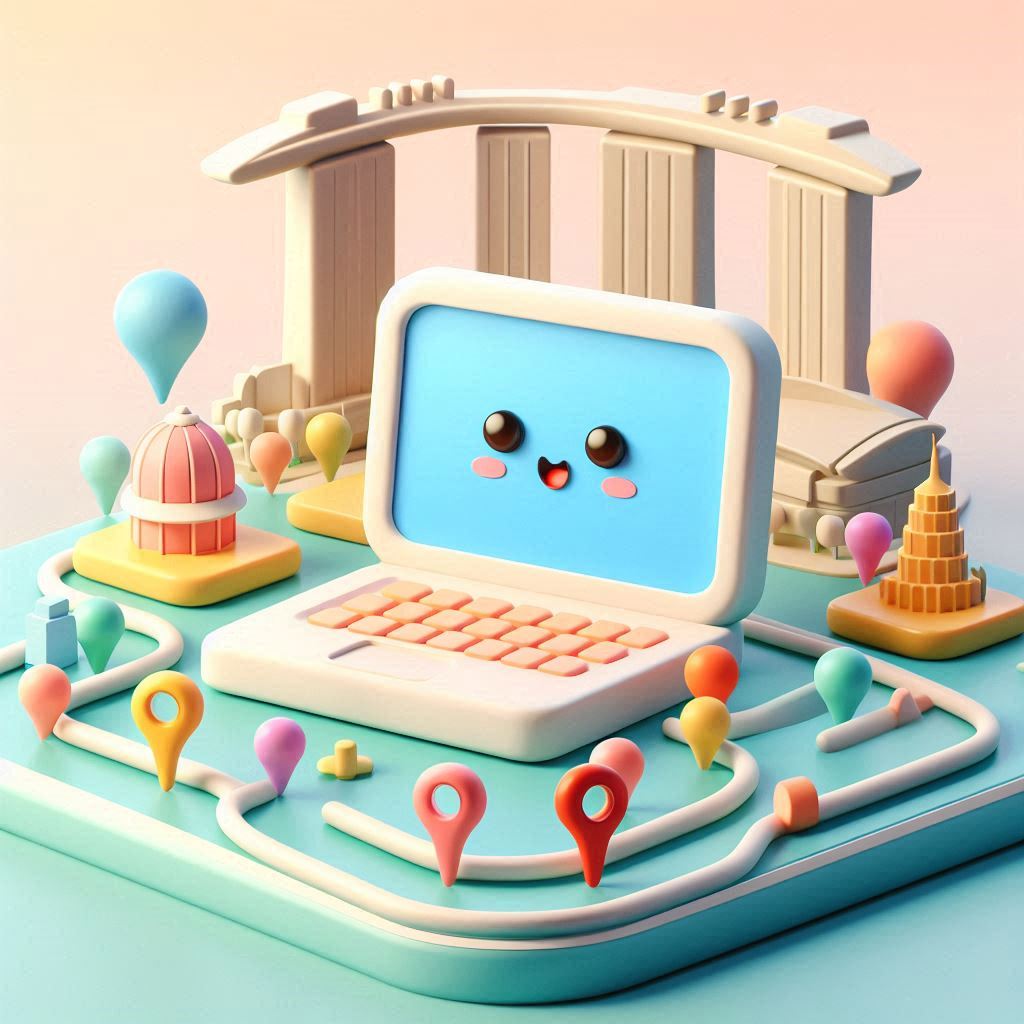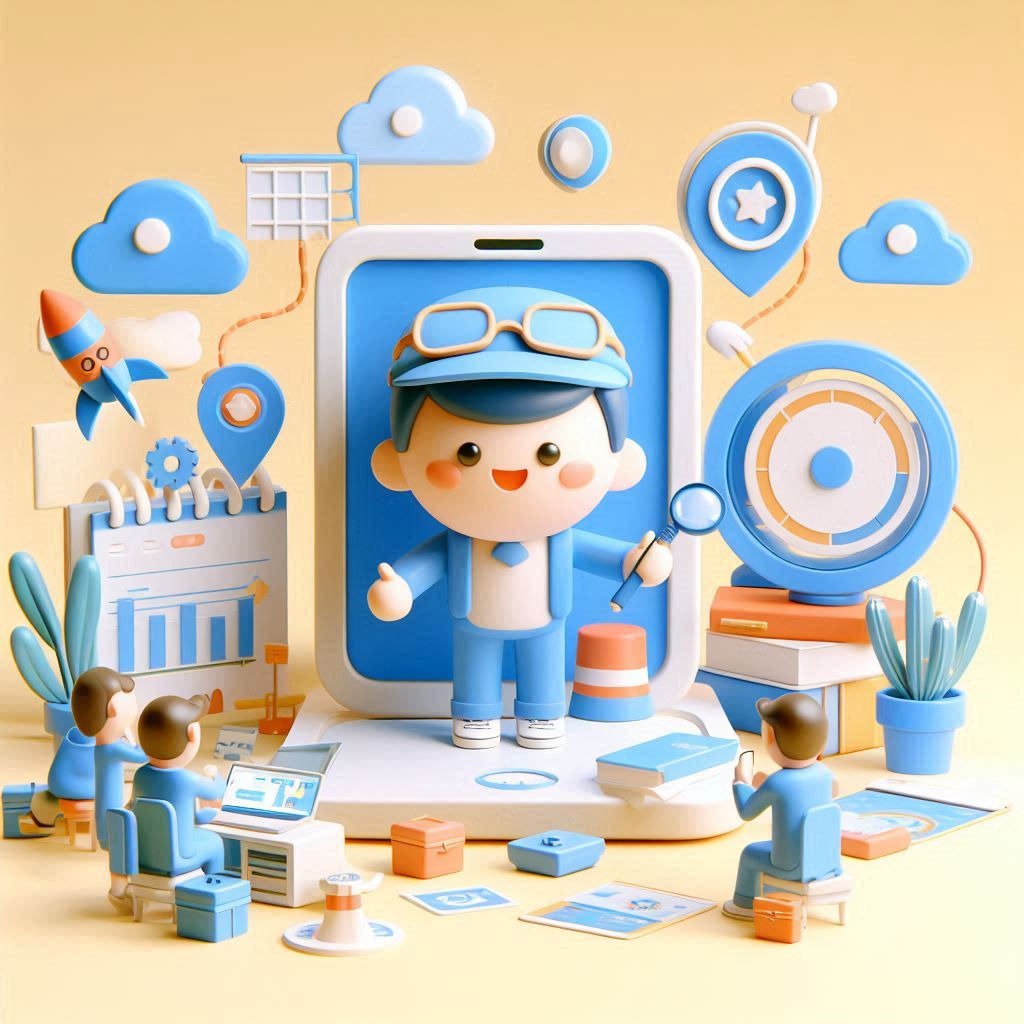🔍 Introduction: SEO Has Evolved — Has Your Strategy?
The world of SEO is changing faster than ever. In 2025, AI-powered SEO (AI-SEO) is transforming how agencies optimize, scale, and rank online content. While traditional SEO still has its place, it’s no longer enough to compete on its own.
Whether you’re a digital agency, CMO, or business owner — understanding the difference between AI-SEO and traditional SEO is crucial to future-proof your visibility and ROI.
🤖 What Is AI-SEO?
AI-SEO is the use of artificial intelligence tools and machine learning algorithms to streamline, scale, and optimize search engine strategies. It leverages:
-
Natural Language Processing (NLP) to understand search intent
-
Automated content generation and optimization
-
Data pattern recognition for smarter keyword targeting
-
Predictive analytics to stay ahead of algorithm changes
📜 A Brief History of AI in SEO
AI’s influence on SEO began with Google’s RankBrain in 2015, which introduced machine learning to understand user intent better. By 2025, advancements in LLMs like GPT-4o, Claude, and Google’s Gemini have transformed SEO with AI tools. These technologies analyze vast datasets, predict trends, and generate content that aligns with search intent faster than any human could.How AI Is Transforming SEO
- Automation: Tasks like keyword research, content optimization, and link analysis are streamlined.
- Personalization: AI tailors content to individual user behaviors, boosting engagement.
- Predictive Insights: Machine learning forecasts ranking factors and trends, giving agencies a competitive edge.
- Scalability: AI processes thousands of pages or queries in seconds, far surpassing manual capabilities.
In short, AI-powered SEO 2025 is about efficiency, precision, and adaptability—core needs for digital agencies in a crowded market.
📜 Traditional SEO: Still Valuable, But Limited
Traditional SEO refers to the foundational strategies used to improve organic search rankings, including:
-
Keyword Research: Identifying high-traffic, low-competition keywords using tools like Ahrefs or SEMrush.
-
Backlink Building: Securing links from authoritative sites to boost domain authority.
-
On-Page Optimization: Crafting meta tags, headers, and content aligned with target keywords.
-
Technical SEO: Ensuring site speed, mobile-friendliness, and crawlability.
-
Manual: Human-written content targeting specific terms
Limitations of Traditional SEO:
While effective, traditional SEO has clear constraints in 2025:
- Time-Intensive: Manual keyword research and content audits can take hours or days.
- Limited Scalability: Small teams struggle to optimize large websites or multiple clients.
- Static Strategies: Traditional methods often lag behind rapidly evolving algorithms.
- Generic Insights: Manual analysis lacks the depth of AI-driven data processing.
⚔️ AI-SEO vs Traditional SEO: Full Comparison Table
| Feature | Traditional SEO | AI-SEO |
|---|---|---|
| Approach | Manual & reactive | Automated & predictive |
| Keyword Research | Human-led | Data-driven with NLP |
| Content Creation | Human writers | AI-assisted or AI-generated |
| Optimization Speed | Slower | Real-time recommendations |
| Adaptability | Lower | High (dynamic to trends) |
| Scalability | Limited by team size | Massively scalable |
| Use Cases | Long-term content planning | Fast content iteration, rapid testing |
| Personalization | Generic audience | Hyper-targeted with AI insights |
Why This Matters
🛠️ Top AI-SEO Tools and Technologies in 2025
Agencies adopting AI-powered SEO 2025 rely on a suite of tools to streamline workflows and enhance performance. Here are the top platforms and their applications:
- Surfer SEO
- Use Case: On-page optimization and content scoring.
- Features: Analyzes SERPs, suggests keyword density, and provides real-time content recommendations.
- Agency Benefit: Ensures content aligns with Google’s ranking factors.
- Jasper AI
- Use Case: Content generation and optimization.
- Features: Creates SEO-optimized blog posts, meta descriptions, and ad copy.
- Agency Benefit: Speeds up content production for multiple clients.
- Frase
- Use Case: Content research and optimization.
- Features: Generates content briefs and answers user queries for featured snippets.
- Agency Benefit: Streamlines topic ideation and FAQ creation.
- Clearscope
- Use Case: Content relevance and keyword integration.
- Features: Scores content for relevance and suggests high-impact keywords.
- Agency Benefit: Improves content quality for competitive SERPs.
- ChatGPT (Enterprise)
- Use Case: Content ideation and automation.
- Features: Generates ideas, outlines, and even full drafts based on prompts.
🎯 When Should Agencies Use AI-SEO vs Traditional SEO?
Use AI-SEO for:
-
Large content websites needing scale
-
Rapid response to trends (news, events, seasonal content)
-
eCommerce product descriptions at scale
-
Competitive keyword clusters
-
Clients needing faster ROI
Use Traditional SEO for:
-
Technical site audits and architecture
-
High-E-E-A-T content (YMYL industries)
-
Branding-focused content
-
Outreach-based link building
-
Local SEO for physical businesses
💡 Best Strategy: Hybrid SEO — combine AI-driven efficiency with human insight and quality control.
🧩 How Agencies Are Integrating AI Into SEO Workflows
🔧 Workflow Example:
-
Topic Research: Use ChatGPT or Frase to generate keyword clusters
-
Content Brief: Auto-generate outlines in Jasper/Surfer
-
Draft Creation: AI-assisted writing tools create first draft
-
SEO Optimization: Score and refine with Clearscope
-
Human Editing: Add expertise, compliance, and brand tone
-
Publication & Tracking: Use analytics and AI feedback loops
✅ Benefits:
-
5x faster content production
-
Data-informed decisions
-
Consistency at scale
🚨 Risks & Ethical Concerns with AI-SEO
-
Quality Control: AI-written content may lack nuance or accuracy
-
E-E-A-T Risk: Google’s emphasis on Experience, Expertise, Authority, Trust still favors human-reviewed content
-
Over-Optimization: Some tools may “over-optimize” and trigger penalties
-
Plagiarism & Originality: LLMs can unintentionally replicate content
-
Dependence: Teams may neglect foundational SEO principles
✅ Pro Tip: Always use AI as a tool, not a replacement. Combine it with expert editing and fact-checking.
🏆 Top AI-SEO Strategies for Agencies in 2025
-
Topic Clustering with LLMs
Auto-generate semantically grouped topics to create authority hubs. -
Automated Internal Linking
Use AI to identify and apply contextual internal links at scale. -
Real-Time SERP Gap Analysis
Tools like MarketMuse identify ranking gaps dynamically. -
On-Site Answer Engine Optimization (AEO)
Train AI on your content to provide instant answers on your site. -
Voice & Conversational SEO
Create content that aligns with how users ask questions out loud.
✅ Conclusion: Evolve or Be Left Behind
In 2025, AI-SEO is not a trend — it’s the new standard. But traditional SEO still plays a critical role in technical performance and trust-building.
The most successful agencies are those that:
-
Adopt AI-SEO tools to scale content efficiently
-
Maintain editorial standards to meet E-E-A-T
-
Blend automation with human creativity and strategy
🚀 Ready to future-proof your SEO strategy?
👉 Contact our AI-SEO specialists for a free strategy session.
✅ FAQ on AI-SEO vs Traditional SEO
Q: What is AI-SEO?
AI-SEO is the use of artificial intelligence tools to automate and enhance search engine optimization strategies, including content creation, keyword research, and optimization.
Q: How is AI-SEO different from traditional SEO?
Traditional SEO relies on manual processes and human-led strategies. AI-SEO uses machine learning to analyze data, scale content, and optimize faster and more efficiently.
Q: Can AI fully replace traditional SEO?
No. AI-SEO enhances and accelerates SEO, but human oversight, strategic planning, and compliance with quality standards like E-E-A-T remain essential.
Q: What are the best AI-SEO tools in 2025?
Popular tools include ChatGPT, Jasper, Surfer SEO, Frase, Clearscope, and MarketMuse for content planning, optimization, and performance tracking.
Q: Should agencies use both AI-SEO and traditional SEO?
Yes. A hybrid approach combining the speed and scale of AI-SEO with the depth and reliability of traditional SEO delivers the best results.





